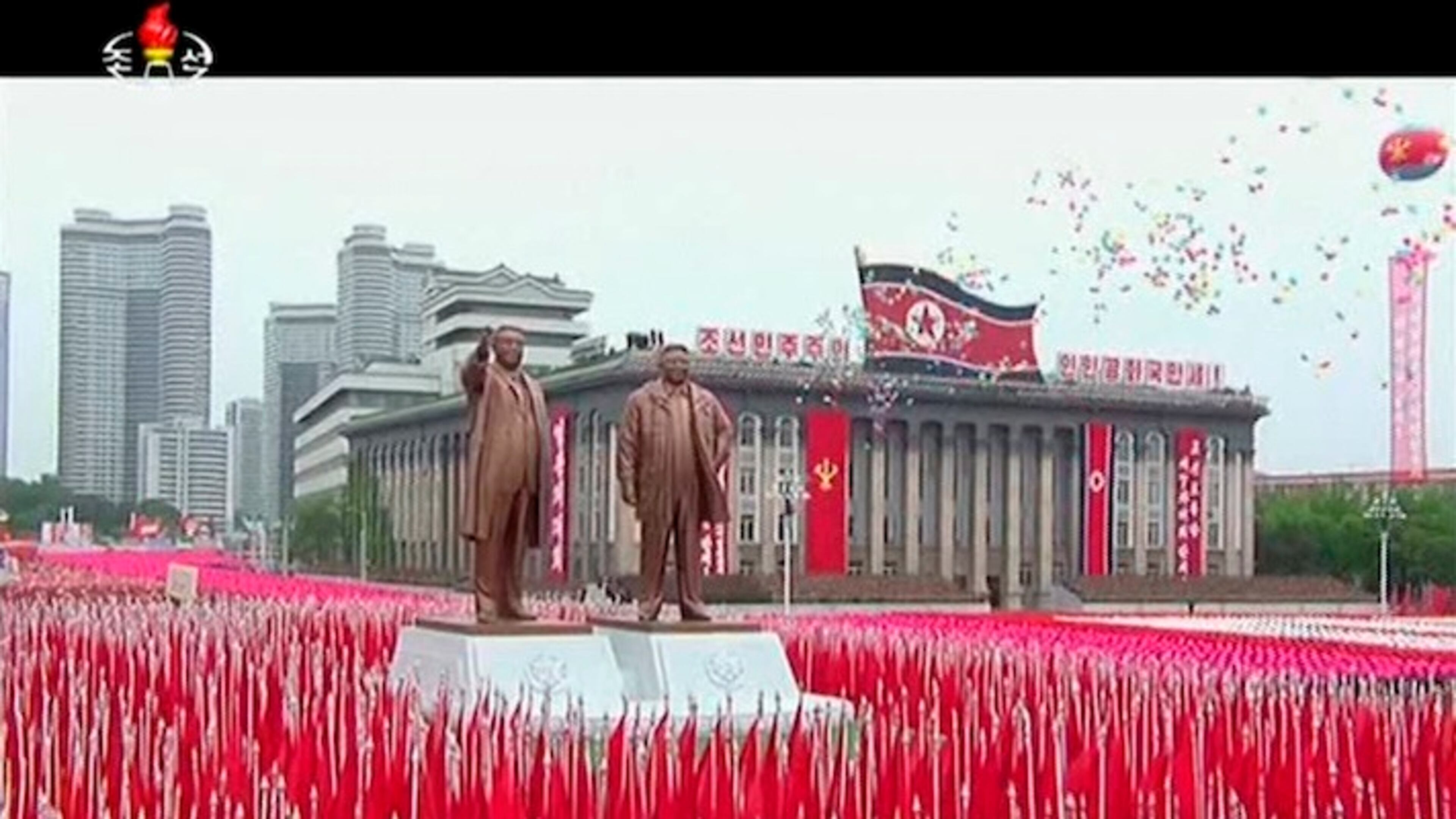Escaping 24-hour coverage of Trump is easy in North Korea

With assistance from Ros Krasny.
PYONGYANG, North Korea -- It may be nonstop Trump season in the U.S., but the Republican presidential candidate has a long way to go if he wants to become famous in North Korea.
No one interviewed on the streets of Pyongyang during a government-run visit by foreign journalists knew of Donald Trump. His potential opponent Hillary Clinton fared a bit better -- a couple correctly identified her as a former secretary of state. Nobody from the handful who agreed to speak knew she was running for president.
"Is that Bill Clinton's wife?" said a taxi driver who would only give his last name, Jong.
While regular North Koreans may not be able to identify Trump, their government can, and might even agree with some of his foreign policy ideas.
Trump has questioned why the U.S. has so many troops -- nearly 30,000 -- stationed in South Korea to provide a buffer along one of the world's most heavily-fortified borders. North Korea has long maintained that the U.S. soldiers are a direct threat to its existence, and claims that the possibility of an attack is the reason it needs nuclear weapons.
Pyongyang may be less enamored though of Trump's recent comment that he'd be open to South Korea looking at developing its own nuclear arms as a deterrent.
Trump has called Kim a "maniac," while musing at a rally in January that "it's incredible" how the 30-something leader managed to dispatch his political opponents. "You've got to give him credit," he said, according to ABC News. "He wiped out the uncle, he wiped out this one, that one. I mean this guy doesn't play games. And we can't play games with him."
Trump has also urged China to handle the North Korea "problem," after the regime tested another nuclear device in January. "China has total control over them and we have total control over China, if we had people who knew what they were doing, which we don't," he said on CNN. "Without China, they wouldn't be able to eat."
For now at least there is no apparent discussion of the U.S. elections on North Korean television. And genuine or not, Pyongyang residents' lack of knowledge seemingly reflects a disinterest in political affairs in the U.S.
While minders translate questions from journalists -- and saying the wrong thing can result in severe punishment -- Trump's name was met with looks of such befuddlement that their denials seems genuine.
Less easy to assess was the sincerity of the harangues that followed when people were asked about the U.S. political system. Nearly everyone referred to "hostile U.S. policies" and said ties would only improve when those policies ended.
"The U.S. did so many bad things during the Korean war -- brutality, killings," said Kim Su Ryun, a 31-year-old woman whose job is handing out state-provided food rations in her neighborhood. "I don't expect relations to improve, but I hope the U.S. government ends its hostile policies."
Questions about U.S. elections also repeatedly drew the claim that such ballots are a sham. North Korea however has a healthy democracy, locals said.
"Not all Americans participate in the election but in our country everyone participates in electing their leaders," said Kim Hong Chol, 50, a bellhop at a hotel where foreigners are allowed to stay. "Everyone can be voted in or out. We speak in one voice and one heart."
Strictly speaking, that's not true. While North Korea's constitution guarantees the right to vote, the country has never held a democratic election for its leaders.
Chol knew Clinton had been secretary of state but said he didn't know she was running to become the 45th president. Nor did he profess to be interested.
"It's not a legal election -- it depends only on the money," he said. "I don't know about it and I don't care."


